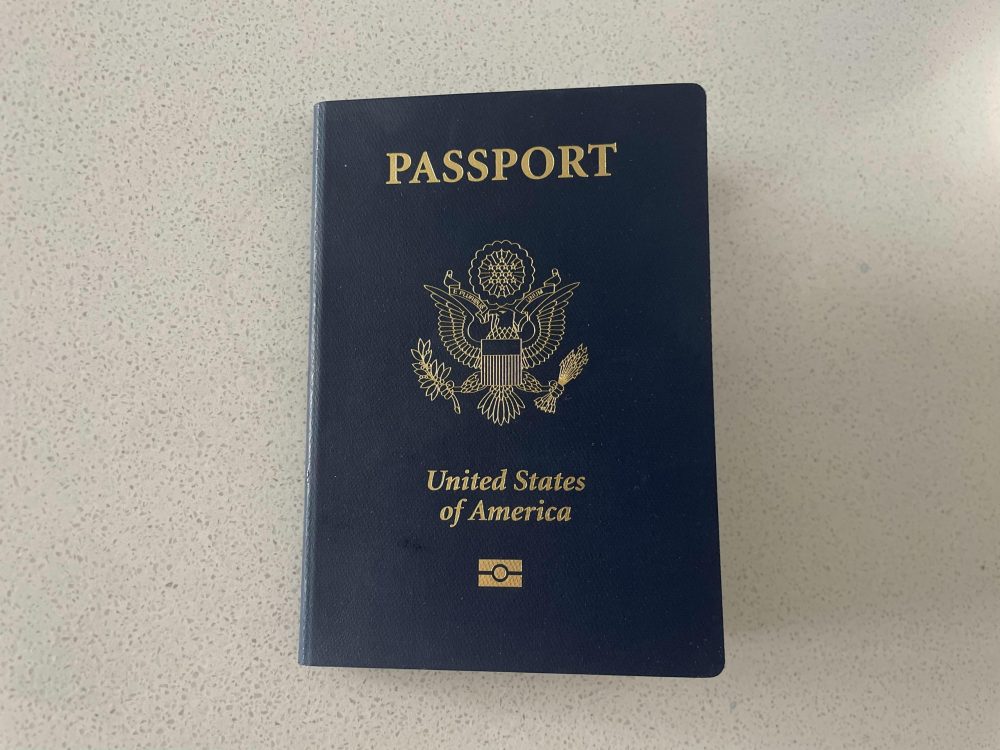WASHINGTON – This month travelers for the first time had the option to select “X” in the gender indicator on passports and that designation is expanding as a choice on a variety of federal documents under initiatives by the Biden administration.
The changes come as many states and some airlines have taken steps to allow the “X” gender marker for non-binary, intersex and gender non-conforming people on an array of documents – moves championed for years by LGBTQ+ rights advocates.
Beginning April 11, the State Department accepted “X” gender markers on passport applications. Other department-issued citizenship documents will have the same option late next year.
The White House said on March 31 that, in addition to the passport changes, the Department of Homeland Security was changing its Trusted Traveler and TSA PreCheck programs to include “X” gender markers. That agency also has been working with airlines to broaden the use of the designation in ticketing passengers.
United Airlines and American Airlines already use the designation and Delta Air Lines announced earlier this month that it would make the option available for bookings later this year.
The Transportation Security Administration in February stopped using passengers’ genders when checking identification at airports.
While Social Security cards do not include any gender designation, the Social Security Administration in February said it would accept “X” gender designations on documents used to apply for Social Security numbers and replacement cards.
“X” gender designations also are being incorporated in employment discrimination complaints filed with the U.S. Equal Employment Opportunity Commission, applications for federal student aid and even the visitor processing system at the White House.
Sarah Warbelow, legal director for the Human Rights Campaign, told Capital News Service that the “X” gender marker on passports is “a measure that’s overdue.” She added that it is important that all forms of identity documents, both at the state and federal level, reflect people’s gender identity.
“So if you’re able to have an X marker on your passport, but you can’t on your license, or you can’t on your Social Security documents that it causes, both headaches for people but also potential safety problems as well,” Warbelow said.
Warbelow said the Human Rights Campaign has been advocating for the shift to “X” gender markers in its Blueprint for Positive Change, a roadmap for proposed federal government policy changes on LGBTQ+ issues.
The Human Rights Campaign says use of the “X” gender marker is not consistent among the states.
Thirteen states have gender marker updates on only driver’s licenses and 23 have the update on both birth certificates and driver’s licenses.
“This is not just a federal issue, but a state issue as well,” Warbelow said. “We need to have a robust uptake of the ‘X’ gender marker across the board.”
The United States is not the only country that has adopted the “X” gender marker on passports. At least 15 countries including Argentina, Australia, Canada, New Zealand, Germany, Denmark, Iceland, Ireland, Malta, the Netherlands have already adopted the marker.
“It is unfortunate when we are reminded that the United States is not on the forefront of acceptance and diversity,” said Darren Vance, executive director at Rainbow Families, a non-profit focused on supporting and educating the LGBTQ+ community in Washington.
The United States has been accepting passports from other countries that have had “X” gender markers on them for over a decade, Warbelow said.
“It is always helpful to point to other jurisdictions that have done the same thing and demonstrated that it’s common sense and doesn’t have any unintended consequences,” she said. “And the fact that these other countries have been doing it for so long, you know, just shows that we are really behind the eight ball on this.”
Vance said the “X” gender marker is an “incredible step towards recognizing gender diversity.”
“I think about how a cisgender man would feel if they were to apply for a passport and the only option was female,” Vance said in an interview with CNS. “And how disempowering and disaffirming that would feel…And gender-affirming recognition is associated with a tremendous reduction in psychological distress and suicidal thoughts.”
“These small victories are absolutely significant and important and worth celebrating,” Vance said, “which is vital for affirming all people in our society who deserve the right to be represented for who they are.”

